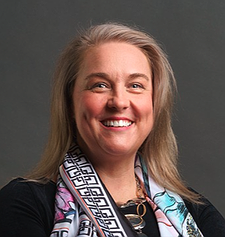Library leaders react to 'Protection Act'
Gov. Brad Little signed House Bill 710 into law Wednesday morning.
Also called the "Children's School and Library Protection Act," the law prohibits those who work in schools and public libraries to make available to minors books, pictures and other materials depicting nudity, sexual conduct or sado-masochistic abuse.
“I share the cosponsors’ desire to keep truly inappropriate library materials out of the hands of minors," Little wrote in a letter to legislators. "That said, I still believe a greater harm confronts our children — content accessible to them on their phones and devices."
Prior to signing the bill, Little's office received 4,923 emails and 2,227 phone calls in opposition of the legislation as well as 1,297 calls and 2,954 emails in favor, press secretary Madison Hardy confirmed.
"This is my personal opinion and does not necessarily reflect the rest of the board, but I opposed this legislation," Jim Windisch, chair of the Coeur d'Alene Public Library's board of trustees, said Wednesday evening.
"Many books written for teens deal with heavy issues including abusive relationships, drug use and self-harm," Windisch said. "These are the books that are most often brought up as having material some feel is inappropriate. However, those books can save lives. Reading about those issues can inspire young adults to recognize those problems in their friend groups or in their own lives so they can get the needed help."
Windisch said this law does not honor personal responsibility or parental rights. He said the Coeur d'Alene library gives new cardholders welcome packets that include a guide for parents and caregivers, which is also prominently linked in the policy section of the library's website, cdalibrary.org. The guide explains how to manage access to materials by using one library card as a family or using online access to a minor's account to monitor what is checked out, Windisch said.
"In addition, a minor must have parental permission to get their own library card," he said. "These safeguards put parents in control of what was appropriate for their individual family."
According to the new law, school and library staff members who provide youths under 18 with materials deemed to be "harmful to minors" will be at risk of incurring $250 fines and other potential consequences. The law goes into effect July 1.
Windisch said the Coeur d'Alene Public Library has had a book challenge/relocation policy for many years. It was updated in May 2022 following the last time books were challenged.
"At that time, we tried to streamline the policy to make the process easier," he said. "The new law forces us to go back to a process with more steps, but a short timeline in which to complete those. In my opinion, this is legislation made by people who are far removed from the management of local libraries. Trustees and library staff already have policies and practices in place that allow families to manage what their children check out while still allowing access to a wide range of materials that represent viewpoints and experiences of all community members."
He said the biggest benefit of this new legislation is that it makes people aware of library policies for challenging books.
"Over the past three years, we have had people coming to board meetings to read passages from books they deem inappropriate. Only once has someone followed the challenge policy to review books they shared with the board," Windisch said. "Following book challenge procedures allows everyone involved, from the person objecting to the book to library staff and trustees, to gather information, share perspectives and come to an informed decision.
"I think using the process set in policy will be more productive than the theatrics of reading a passage out loud in a public meeting," he said.
Violations of the new law will include distributing objectionable materials to minors and failing to restrict minors' access to the objectionable materials. Requests to relocate such materials to adults-only locations must be made in writing to the school or library 30 days before legal action is taken.
Windisch said the biggest negatives of the new law come with the requirements of having to create an "adults only" section of the library and allowing for legal action against the library if a book that has had its challenge accepted is found outside that "adults only" section.
"We will need to figure out the best way to manage those requirements," he said.
Community Library Network Director Alexa Eccles, who oversees seven libraries and a Bookmobile throughout North Idaho, said she doesn't believe any materials owned by the Community Library Network meet this new library law’s definition of "harmful to minors."
Eccles said the Community Library Network prefers to be ahead of or in front of library and community issues, and as the Idaho Legislature has been discussing minors and libraries for three years, she is not surprised by a new law and refined definitions.
She said the CLN has a long history of working with concerned community members and parents to ensure children have access to suitable library materials.
"Seen as a statewide leader within the library community, last year, CLN began offering tiered minor access library cards and created a teen collection just for 13- to 15-year-olds in addition to a collection for young adults aged 16 to 18," she said, adding that public libraries nationwide typically offer only a singular collection for all teens, ages 13 to 18.
"I am proud that CLN listens and is very responsive to our local community members. We are stronger and a better library district because of it," Eccles said. "I anticipate the board and staff will continue taking a thoughtful, innovative and positive approach to implementation. The new law is certainly an opportunity to see changes in libraries around Idaho."
• • •
Bill Buley contributed to this article.





